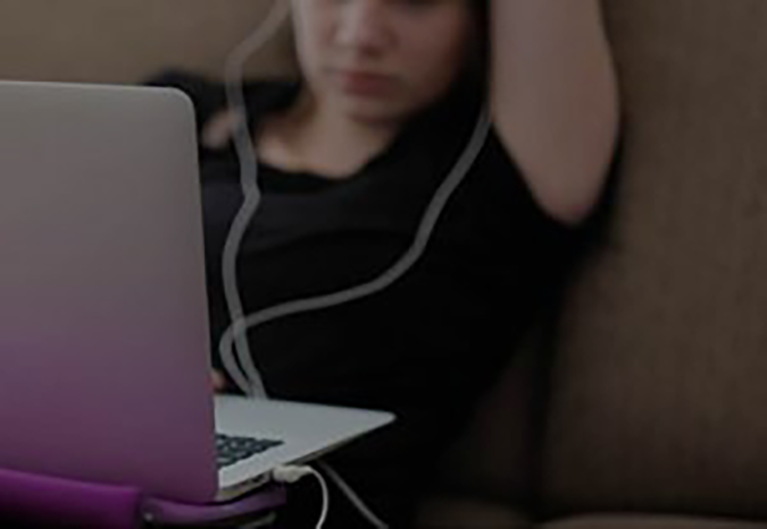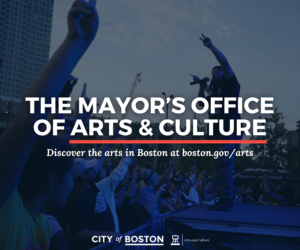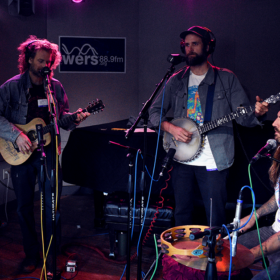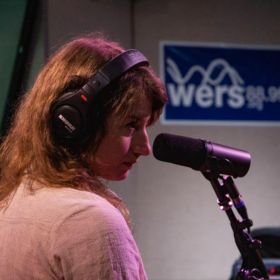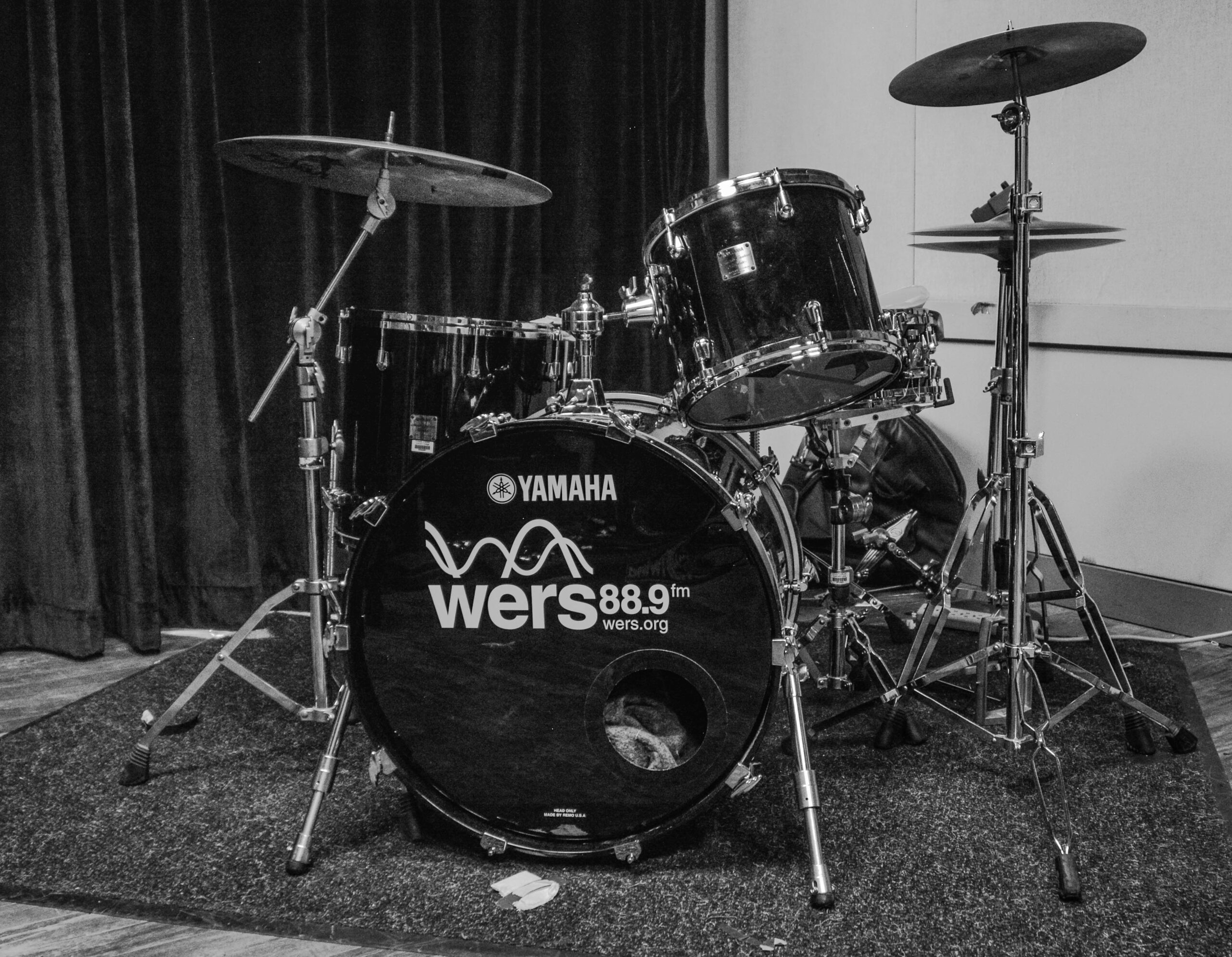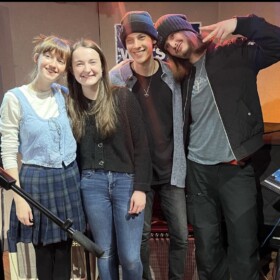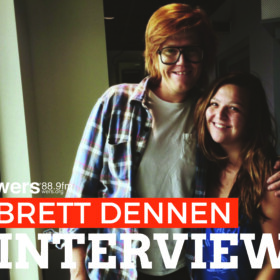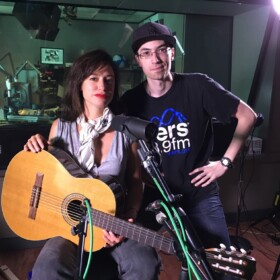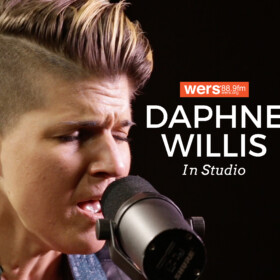
After getting a place in Central Square mid-December, the Subcentral team transformed it into a unique space dedicated to teaching and growing the underground electronic music community. They offer DJ, VJ, and Music Production classes at various levels. From the team, Victor Marreiro, Kristina Khanenko, Diego Torres, Danna Kahn, and co-founder Jose Zamora recently sat down with staff writer Megan Doherty. They talked about creating the company, what VJing is, and Boston's underground electronic music scene.
HOW DID YOU COME UP WITH THE IDEA FOR SUBCENTRAL?
Jose Zamora: We were a collective right before the pandemic. We were doing parties weekly. But when the pandemic hit, we had to stop completely. Yeah. So, I had to find a way to keep doing what I love and to keep sharing my knowledge and my music with people. I realized that there was a lot of demand for people that wanted to learn. So I started giving classes, private lessons, and then I started there. I just wanted a space where we could teach, but also play loudly without disturbing anyone, and experiment with music.
HOW DID YOU ALL MEET EACH OTHER?
JZ: So I first met Victor awhile ago. When I was doing parties and events, I was invited to Harvard to talk about it and the DIY events. There was this panel discussion with a bunch of other artists, and DJs and promoters were invited. He happened to show up and ask the right questions. We just connected from there. Since then he's been one of the residents and also our marketing and design manager. So it was natural for me to invite him to be a part of this project as well.
Kristina here, we met last year. She was one of my first students actually. Right away, she learned really fast, and she joined the team naturally as a resident, but also as a social media manager. She helps a lot with everything that is mentioned on social media, and a lot of ideas to bring people from the outside here. I met Diego through Victor.
Diego Torres: Yeah, we knew each other beforehand. So once Victor felt that the time was right, he invited both of us to join him. We're really glad we did. It's been a few months now at this point, at least two. So, this is a fairly new thing. We're fairly new additions, but at this point we're in it for the long run, and we're really excited.
SO HOW DID IT GO GETTING THIS PLACE AND THE TEAM ALL SET UP TOGETHER?
JZ: Back when we were getting the space, the political climate was still pretty bad. I mean, we still didn't know if we were going to be able to actually do what we wanted here. Thankfully, things changed politically and the vaccines came out. So, we realized that we will be able to actually execute the project properly. And then, it was a whole bunch of donations from the couches, some to some speakers.
WHAT WAS IT LIKE STARTING SUBCENTRAL IN THE MIDDLE OF THE PANDEMIC?
JZ: It was stressful. We didn't really know what was going to happen, but I had faith that we had a great team. I also had faith that the project itself brings something good to the community. So we were going to find ways to do it, but the idea at the end was to be able to teach people. I saw that more and more schools, and more and more things like these were allowed to open. So that reassured me.
YEAH, DEFINITELY. I FEEL LIKE THERE'S NOT A LOT OF MUSIC PRODUCTION PLACES THAT YOU CAN GO TO, SO IT'S PRETTY COOL.
JZ: Yeah, especially for electronic music. It's mostly all hip hop and pop music. For electronic music, I don't know a lot of studios that people have access to. There's a lot of private ones in people's homes.
Victor Marreiro: We're focused more specifically on electronic music and electronic music scene culture, and the arts that involve it. I think this is the only place.
DT: We're one of a kind.
WHAT MADE YOU WANT TO FOCUS ON ELECTRONIC MUSIC?
JZ: I've been in the electronic music scene since I was a kid. I was born in Mexico, raised in France, and in both countries, electronic music is part of the everyday culture, especially in Paris. At 15, I became a DJ. I started playing at the high school parties, and little by little, I just made my hobby my passion, and now it's my life.
Kristina Khanenko: But also, electronic music has such a culture to it. And that's exactly what we're trying to reimburse here in Boston. Like for me, I'm a very newcomer. I moved to the United States two years ago and have found the place where the music was celebrated 10 days after my first coming here. It was this underground field of this lost culture that we're now trying to break the surface and show that if people are creative, all they need is a space. All they need is to come somewhere and become united. Electronic music has so much history of where it came from. All these people try to continue to celebrate electronic music, and that's why this space is growing so fast and has a great community already.
HOW WOULD YOU DEFINE BOSTON'S UNDERGROUND SCENE AND ELECTRONIC SCENE, AND WHY IS IT SO CRITICAL FOR YOU TO CREATE THIS SPACE?
JZ: When I first arrived in 2011, there was an underground scene and there is an underground scene. It's very small, so everybody knows each other and it's the same promoters, the same DJs. Everybody knows each other. But, Boston has a big commercial scene, but all service oriented, expensive covers, dress codes. It kind of goes against what I believe, personally, that music represents, especially this music. This music was created underground, and it's always going to stay underground. Now it's become a trend, a marketing tool, for a lot of commercial artists. So for us, it's important to keep reminding people that might like this music, where it comes from and where it has to stay. Of course, it's going to change. Popular music changes all the time. But, this kind of music is always going to stay there, and it's where the music is innovated and created.
I SAW ON YOUR WEBSITE THAT YOU TEACH VJING. WHAT IS VJING?
JZ: So it's basically DJing, but instead of using music, you use videos. It's usually in clubs or in major production events, and the underground, you will have a VJ. A VJ mixes the video, gives visuals to the music. And then you have an LJ, which is the lighting jockey. So they're the person who controls the light.
KK: Something really cool to connect what exactly this is, is that the Boston scene and clubbing used to be before Covid. With the visuals, that's where it comes in - the sound, the lighting. What we're trying to show is that clubbing and music and this idea of partying can be looked at in a different way. When you're listening to music, you're experiencing it, and with all your senses - with your eyes, with your ears, with lights as your ambience around you. It's an atmosphere. It's an experience. And that's exactly what we're trying to show with DJing, with production, with everything, is that it's an experience that unites everyone together. It's like one mechanism that works together to create a unique experience every time. So it's like an art show every time.
VM: It deviates the focus from being just normal clubbing to something more experienced, like something more surreal.
HOW HAS THAT CHANGED NOW THAT YOU CAN'T HOST PARTIES?
JZ: At first it was definitely frustrating because we're used to this, and now you cannot do it. I really liked the energy from the dance floor and creating one. Now you cannot really be together. It's not allowed, and it's not safe or healthy. It definitely changed my perspective. I think that now even the way I play music is completely different from before because I don't have a crowd to play to. So, I connected to my producer side a little bit more. It changed the way we make music and play music, but I think it's for the best 'cause once things come back, we'll be stronger than before.
DT: It's encouraging to see people still be interested, even if there are no current events in place right now.
Danna Kahn: And I think this is the result of that - just like missing parties and being in that scene with those types of people - it's just coming here and learning.
VM: We did find new platforms too, which is streaming, and implementing, not just visuals for streaming, but also interior design, light design. Every time we do something different, we would bring a new idea that would be cool for people. Things like DJs that we already know and some new DJs, but also the setting might be different. That was a point of adapting for us. We would see people's reaction to it and see how they're keeping up to it.
DT: We have an eye for the future. Most of us are almost vaccinated at this point, and we're obviously very much in compliance with whatever the state says. As things continue to improve, or ideally through the summer, but again safety first and we always follow the rules here, but nonetheless, we do have an eye towards the future and perhaps opening up the space to offer performance opportunities. Whether it's for our instructors or for students in the future, or perhaps even something outside, that's in the works.
At this point, we can't get too far ahead of ourselves. So it's still nonetheless really encouraging to see that our community is still willing to engage and learn and do it this way. It'll be for the better 'cause like you were saying earlier, Jose, in terms of keeping the music within the community and beyond just whatever big pop act wants to say they're electronic now, this is an opportunity for the members of the community to support the members of the community by learning, by keeping the art alive. It's been really exciting to see how happy the community has been in making this happen. So, it all comes full circle.
CAN YOU EXPAND ON THAT? HOW INTENSE WAS THE RESPONSE?
DT: Well, we just have people saying like, "we really needed this. We were looking for this, and we wish someone had done this sooner." The course is an investment, but it's an investment that pays in terms of the amount of music that you create. I mean, particularly with electronic music, the possibilities are endless. So, in a way we're trying to service the community as best as possible and offer it at a point where it's accessible. That way, this investment benefits the community in the long run, keeping the art alive.
VM: It's towards that, but also in terms of a lot of people being interested and taking classes, as well as being involved with these places as a cultural center. One of the things that we always like to emphasize is that a lot of places can teach people all the techniques and how to use the equipment. But then again, what we learn the most performing and playing different places is how you can apply all that technique creatively to do something new or more original. So when you open doors for people to come and not just learn, but be involved in and get to know what others are doing, get to know what their instructors are doing - I've learned a lot from [Jose]. I've learned a lot from everybody that I work with. When you have these kinds of collaborative spaces and you further the opening even more into arts, visual arts, it's interesting because people don't really see that. So their responses are usually really overwhelming. You see people hitting our DMs, and you see people sending emails and sending DMs even to personal profiles. It's really amazing. It's super cool. I don't think this would have happened the same way if it was like a year ago.
KK: Something interesting, if I could add to what Victor said about the way that the learning actually happens here, there's a particular moment that goes into my mind. There's a young guy that recently approached us who is doing his bachelor's at Berklee. He's studying electronic music. We were talking about music, and he was saying, Berklee, how they teach music is like, "this has to be like this." All these American universities are now expanding with this decolonization of education, and that's exactly what is happening here. We're decolonizing this idea of there's a teacher and there's a student. Everybody is in the learning process together, different times, different experiences.
Yet, there's always something to be engaged with and learn about. That's so great to hear someone young and someone who just came into the city and say, "I never heard it played like this." "I didn't know that you can play house together with, I don't know, drum and bass, and it all sounds great." I'm making this up, but you know what I mean? It's constraining away from this basic idea of what things are supposed to be like together in a creative way, in a space like this.
JZ: The thing that we tell the people that come here is that we're here to teach us as much as we are here to learn from you guys. That gives us the opportunity to customize the lesson or whatever we're teaching, adapting to each person.
Subcentral is located in Central Square at 645 Massachusetts Ave, Cambridge, MA 02139.

